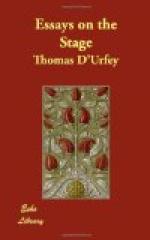One would not hastily question Testimonies in matters of Fact, where there appears any probable Arguments to support them. And therefore I am far from objecting against the Knowledge and Integrity of the Booksellers called in to vouch for that Letter, But withall I must beg leave to think it strange, that a Person of Learning and Character should so incautiously espouse a Discourse, and recommend it for the direction of a Gentleman’s Conscience, who consulted him for Advice; the Reasoning whereof is not only so weak and Superficiall, but grounded upon Misconstruction in some, and Misrepresentation in Other Authorities cited by it. Methinks these ought to have been well examined, before a man had so perfectly gone into the Consequences drawn from them: such of them at least as are exceeding obvious, and might have been detected by recurring to Books, which almost every Divine hath ready at hand.
In this translated Reply the Reader will not have cause to complain of such Neglect. The Passages out of Thom: Aquinas, St. Jerom, and some others, have been diligently compared, and the Originals faithfully inserted in most material points. And I cannot but wish, that this Book, extant at Paris ever since 1694, had fallen into the hands of this Doubting Gentleman, instead of that Discourse, which it was intended to confute: That neither the Translator, nor his Friend the Worthy Divine, might have given themselves the Trouble of a Vindication of Plays; so reproachfully treated, and so substantially answered, that one would wonder it should have the confidence to appear in English afterwards, to tempt the same Scorn here, when followed cross the Seas by the Bishop of Meaux.
By some expressions, I confess one might be apt to think, that the Author of the Discourse was not perfectly known. But of that no reasonable Doubt can remain, when we find the Replyer to have retracted: and Submitted to the Censure of the Church, Why the Author expresses himself in Terms so soft and general I undertake not to determine. He might in Tenderness forbear his Adversarys Name; He might be content to look upon him as an unwary Publisher, rather than the Writer; and, after Submission made, might charitably desire, as far as might be, to cover his Reproach. It Suffices, that the Opinions in the Book be confuted, and exposed to shame; and when this is done in the Punishment of the Reputed Author, the matter is not great, if the Name from thenceforth be forgotten. If Mons’r Caffaro had the Hardiness to assert a Tract so unworthy his Character, his Answerer would not add perhaps to the Scandall, when that Shame had been taken to himself, with a Remorse becoming the Fact. But be this how it will, Censures, we know, are not inflicted upon Indefinite Some-bodies; that such were inflicted, and a Retractation made, the very first period is peremptory: And I hope the Bp. of Meaux, and his manner of writing, are at least as credible an Evidence of this, as the Booksellers can be Allowed to be, of that Letter being genuine, which refers Mr. M’s Conscience to the Discourse for Satisfaction.




